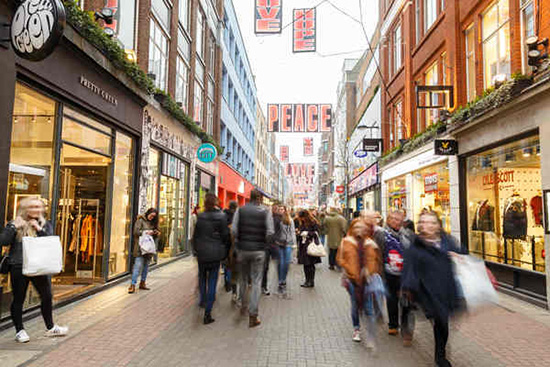What are Big High-Street Retailers Doing to Appear More Eco-Friendly?

The death of the high-street might have been over exaggerated, but high-street brands do have a battle on their hands if they want to compete with the more competitively-priced online retailers. One area in which high-street retailers have been fighting back to hold on to the hearts and minds of consumers is in their ethical practices. As physical stores utilise more resources than digital-only retailers, it’s important that they are seen to be doing something to offset the impact of their brick and mortar presence.
Of course, it’s more difficult for high-street chains that have been around for decades (and in some cases even longer) to make an impact. Particularly when competing with startup companies such as recycling service First Mile, which operates with eco-friendliness at the core of its business model. Below, we’ll examine a few high-street retailers that are doing their best and leading the charge by comparing them to their immediate rivals. An ethical face-off, if you will.
Arcadia VS INditex
The Arcadia Group is made up of seven individual and iconic fashion brands (including Miss Selfridge, Topshop/Topman and Wallis), which represent everything from designer high-street fashion to more affordable, everyday wear. The company is also a powerful force when it comes to socially responsible business practices and also runs a number of environmental schemes, chief amongst which is the Arcadia Fashion Footprint programme. As part of this programme, the Arcadia group strives to use only the most ethically sourced materials and is constantly searching for new ways to reduce its environmental impact.
INditex is perhaps Arcadia’s largest competitor. The group consists of eight fashion brands such as Zara, Massimo Dutti and Oysho. INditex has a very similar environmental policy to Arcadia, putting a particular emphasis on the measures it takes to protect biodiversity, reduce water consumption, avoid waste and combat climate change. It could be argued they are taking very much a ‘jack-of-all-trades’ approach, but their commitment to ‘Closing the Loop‘ by installing recycling bins in their stores and using sustainable materials wherever possible is particularly admirable.
Boots VS Superdrug
The UK’s most popular high-street pharmacist, Boots takes its commitment to environmental support very seriously indeed. They have focused their eco-friendly operations on three main areas (product sustainability, packaging and energy/carbon management) and promote a holistic approach to “sustainable decision making.” The company also signed the UK Plastics Pact in 2018, which means they are one of a number of proud UK businesses that have made a pledge to transform the UK plastic packaging sector. They removed the plastic micro-beads from their products prior to the ban in 2015 and were one of the first major businesses to switch to recyclable toiletry bottles.
Superdrug is the main competition for Boots and is often seen as the more affordable alternative. Its environmental policies are less comprehensive, however, it does make a concerted effort to pledge its loyalty to the Cruelty Free International cause. It boasts that its own-brand products all conform to Cruelty Free standards and the exclusive ‘B’ range is proudly vegan, containing no animal-derived ingredients or by-products.
